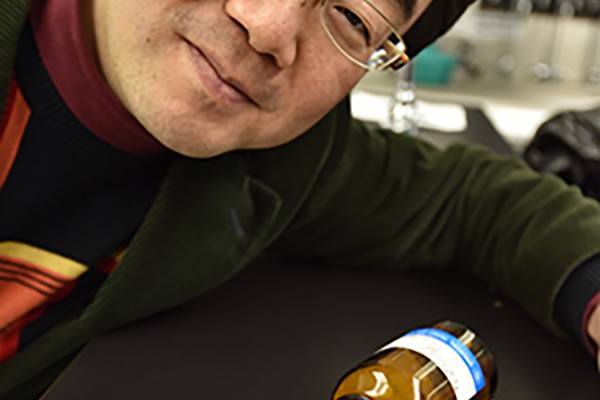Study asks whether healthy diet or weight loss makes you live longer
Researchers at Washington University School of Medicine in St. Louis are recruiting volunteers for a study comparing the potential health and longevity benefits of the Mediterranean diet with those of a typical American diet. The study’s aim is to determine whether health and longevity are influenced more by healthy eating or by weight loss.
Drastically cutting calories lowers some risk factors for age-related diseases
The largest study to date of sustained calorie reduction in adults shows that it does not produce all of the metabolic effects associated with longevity that have been found in animal studies. Severely cutting calorie intake, however, did appear to lower the risk of cardiovascular disease and make people more sensitive to insulin, according to John O. Holloszy, MD, principal investigator at the study’s Washington University clinical site.
Fat signals control energy levels in the brain
An enzyme secreted by the body’s fat tissue controls energy levels in the brain, according to new research led by Shin-ichiro Imai, MD, PhD, of the School of Medicine. The findings, in mice, underscore a role for the body’s fat tissue in controlling the brain’s response to food scarcity, and suggest there is an optimal amount of body fat for maximizing health and longevity.
Washington People: Shin-ichiro Imai
Shin-ichiro Imai, MD, PhD, is a professor of developmental biology and of medicine at Washington University School of Medicine in St. Louis. Over the past three decades, his research has shed light on the processes of aging and longevity as he has sought to help people maintain better health into later years.
Strategy proposed for preventing diseases of aging
More efforts should be directed at promoting interventions that have the potential to prevent multiple chronic diseases and extend healthy lifespans. School of Medicine and other researchers write in Nature that economic incentives in biomedical research and health care reward treating disease more than promoting good health.
Mouse study offers new clues to cognitive decline
New research suggests that certain types of brain cells may be “picky eaters,” seeming to prefer one specific energy source
over others. The finding has implications for understanding the cognitive decline seen in aging and degenerative diseases such as Alzheimer’s and multiple sclerosis.
Aging really is ‘in your head’
Researchers have identified the mechanism by which a specific sirtuin protein called Sirt1 (shown in green) operates in the brain to bring about a significant delay in aging and an increase in longevity.
Painted turtle gets DNA decoded
Scientists have decoded the genome of the western painted turtle, one of the most abundant turtles on Earth, finding clues to their longevity and ability to survive without oxygen during long winters spent hibernating in ice-covered ponds.
Calorie-restricted diet keeps heart young
People who restrict their caloric intake in an effort to live longer have hearts that function more like those in people who are 20 years younger. Researchers at Washington University School of Medicine in St. Louis have found that a key measure of the heart’s ability to adapt to physical activity, stress and other factors, doesn’t decline nearly as rapidly in people who have significantly restricted their caloric intake.
Longer Life Foundation grants to be awarded
The Longer Life Foundation is seeking applications for research funding in 2012. The group plans to fund four or five grants in 2012. Letters of Intent are due by Feb. 20.
View More Stories


